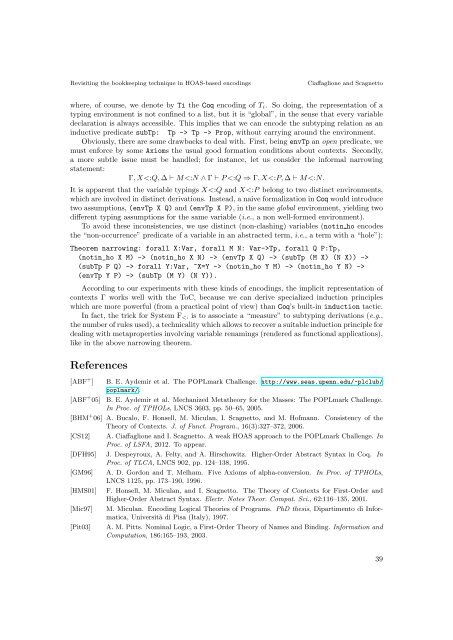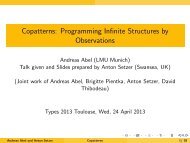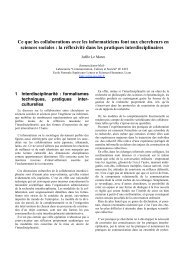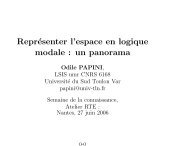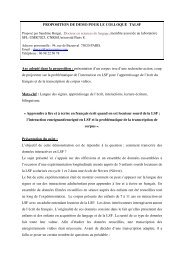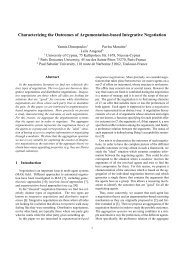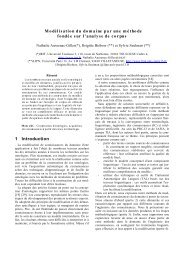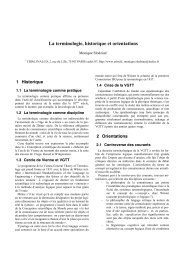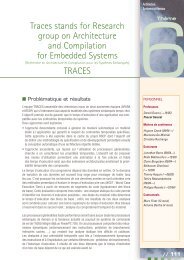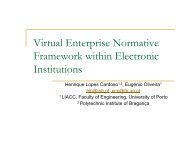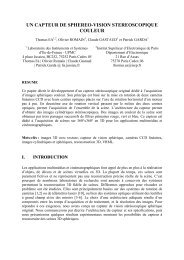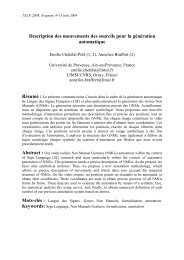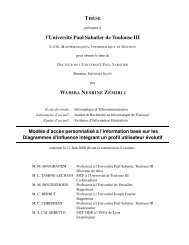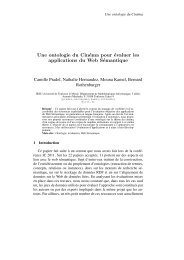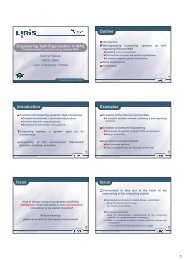Book of Abstracts - IRIT
Book of Abstracts - IRIT
Book of Abstracts - IRIT
Create successful ePaper yourself
Turn your PDF publications into a flip-book with our unique Google optimized e-Paper software.
Revisiting the bookkeeping technique in HOAS-based encodings<br />
Ciaffaglione and Scagnetto<br />
where, <strong>of</strong> course, we denote by Ti the Coq encoding <strong>of</strong> T i . So doing, the representation <strong>of</strong> a<br />
typing environment is not confined to a list, but it is “global”, in the sense that every variable<br />
declaration is always accessible. This implies that we can encode the subtyping relation as an<br />
inductive predicate subTp: Tp -> Tp -> Prop, without carrying around the environment.<br />
Obviously, there are some drawbacks to deal with. First, being envTp an open predicate, we<br />
must enforce by some Axioms the usual good formation conditions about contexts. Secondly,<br />
a more subtle issue must be handled; for instance, let us consider the informal narrowing<br />
statement:<br />
Γ, X (notin_ho Y M) -> (notin_ho Y N) -><br />
(envTp Y P) -> (subTp (M Y) (N Y)).<br />
According to our experiments with these kinds <strong>of</strong> encodings, the implicit representation <strong>of</strong><br />
contexts Γ works well with the ToC, because we can derive specialized induction principles<br />
which are more powerful (from a practical point <strong>of</strong> view) than Coq’s built-in induction tactic.<br />
In fact, the trick for System F


